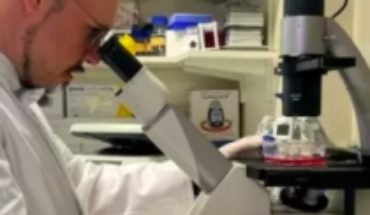
Four months ago, judges and judges of the country began an uncertain journey that forced us to redefine the way we operate in the protection of the health and life of the community. A journey that has led us to pass through different stations that have required one-off strategies to ensure equal access to justice. From the judiciary the mandate was clear: to abide by health measures, moving the work to our homes to ensure continuity of service and to apply criteria. That is to say, to focus first on what is most urgent.
In these lines we are concerned with specialized justice to resolve family-natured conflicts. If we review the various conflicts that are within our competence, we will see how complex it is to discriminate in setting care priorities. As a family, especially in the case of vulnerable groups – children and adolescents at risk; victims of domestic violence, especially women, older adults or people with disabilities – all warrant urgency in care. This is an area of justice that demands to be extremely alert.
It is our competence to resolve adoption issues; childcare; right and duty to maintain a direct and regular relationship with children of affiliation or paternity or maternity determination; misconduct attributable to minors. Indeed, also of the mistreatment, abuse or abandonment of children and the consequent protective measures. We could continue to list, but we believe that the subjects outlined are sufficient to understand the importance of family justice and in turn illustrate how complex it is to prioritize.
Like everyone in this pandemic, we had to redesign much of our approach to work and in this challenge our best ally was the ability to be creative, ductile, resilient. Three characteristics that are clearly not what a judge, a judge, usually implements.
In a first station the most important thing was to keep the channels receiving complaints open. To this end, telephone lines and platforms were implemented on social networks with the collaboration of different community organizations and Carabineros. In this instance we were able to revalue the technological capacity of the judiciary.
In a second stage the challenge was to realize the constitutional guarantee of effective judicial protection. This involved incorporating all those involved in our procedures, especially collaborating agencies. We assess existing causes and the safest ways to continue their processing, taking the necessary measures to ensure the fundamental rights of all, especially children and adolescents, and victims of domestic violence.
Despite all the effort and resilience of judiciary officials, the route became winding when we warned of a lack of connectivity in the most isolated areas of the country, especially in rural settlements. Where there’s no sign of digital literacy.
For the administration of justice in this “remote” mode to be effective, it is not enough for judges to have good connectivity and computer skills, the same skill and the same connection scenario must have our “user”. And that’s where we run into the digital divide that, as we move away from the big cities, going into the urban periphery, and the rural world, is becoming more acute. Therefore, it becomes complex to remedy immediately.
The answer we gave was to provide digital support. Help our users who inhabit isolated areas, who are not accustomed to the virtual world or who simply do not have access to the internet. This strategy in some cases was developed by the hand of municipalities; in southern towns such as San Juan de la Costa, Puyehue, Puerto Montt, Puerto Octay. It consisted of enabling connectivity spaces that we named “Zoom Point”, which is nothing more than the “digital square” of the village.
It is at this moment that we realize that this trip has different routes, just like our country and its geography, we do not use the same path when we go from the coast towards the mountain range as when we go from the south to the north of Chile. As family justice we have had to chart unknown routes, since our sole purpose has been to maintain access to justice. This system that we have called “telework” and that from a time to this part has ceased to be novelty to become part of our routine, it requires to be flexible, creative, patient, and paradoxically demands at the same time to be severe and strict when it comes to safeguarding the “due process”, which guarantees that every Chilean and every Chilean will see their rights protected, especially children, especially children , older adults, people with disabilities, victims of violence within their homes.
One of the complexities that has been presented to us at this time is direct and reserved communication with children and adolescents. Special care must be taken to ensure their rights to be heard, safeguarding privacy and, as is well known, in this context of videoconferencing there are always adults nearby – relatives or caregivers of Sename – who can eventually limit that right. Access to the expert reports of those trials, which safeguard the judgment, with the maximum information, has also not been without difficulties.
At the other end, we have witnessed processes that would not have been realized with the same degree of success of not mediating technology. For example, in a protective measure a father who lives in an isolated area of our Patagonia was located and was able to access the audience from home, taking responsibility for improving the situation of a daughter he did not know about four years ago. We managed to include in the hearings parents living abroad, who had no contact with their children in a long time ago, allowing agreements to be reached that in normal circumstances would have been impossible.
Here we are, in the middle of a path, demonstrating the need for a response that other powers of the state must give through public policies to improve connectivity, technological resources and the development of virtual skills in vulnerable groups. It is urgent that all detainees in Carabineros, rural posts, schools and community centres have internet connectivity.
In this section of the journey that we started in March it was the National Association of Magistrates and Magistrates that has lifted the need for transitional legislative reforms to normar this remote work and the one that awaits us: the semi-presence and the face-to-face.
This journey has shown us unknown paths, has revealed to us our ability to make forms more flexible. In fact, we are sure that many of the strategies used by the pandemic have improved our response to the user and perhaps arrived to stay.
The content poured into this opinion column is the sole responsibility of its author, and does not necessarily reflect the editorial line or position of El Mostrador.





